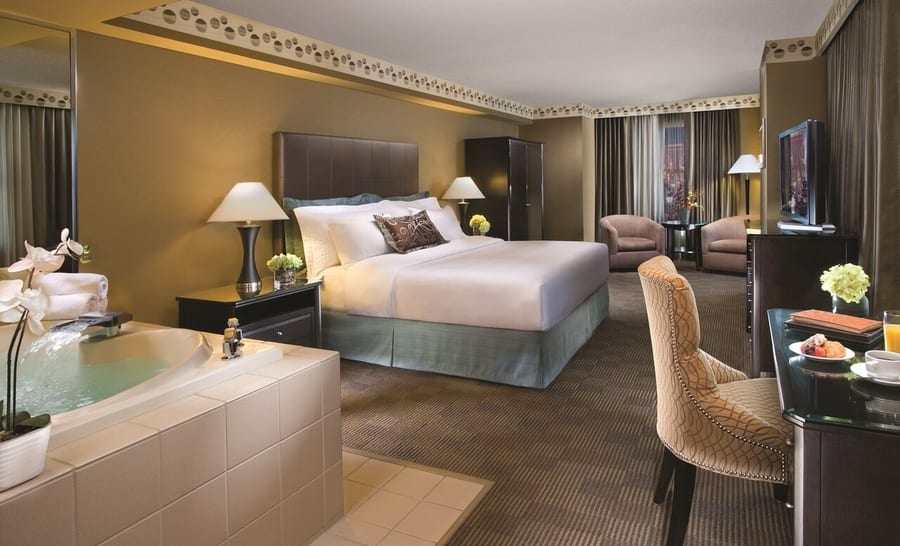
Guest satisfaction is the backbone of the hospitality industry. Just as welcoming your guests with a smile and providing quality service is important, ensuring that they stay in a comfortable and healthy environment is equally critical. One of the most defining elements of comfort is air quality.
It’s not only about “clean air.” Silence, the right temperature, proper humidity level, odor control, and air circulation are also essential components of comfort. So, how can ideal indoor air quality be achieved in a hotel room?
1. Provide Clean Air with the Right Ventilation System
When fresh air is not continuously supplied to hotel rooms, air quality deteriorates quickly. Especially in well-insulated rooms with double glazing, the absence of outdoor air circulation leads to reduced oxygen levels and increased carbon dioxide. As a result:
-
Guests may experience headaches, fatigue, and sleep problems.
-
The room develops a feeling of “stuffy air.”
-
Damp rooms carry a higher risk of mold formation.
Solution: Each room must have a mechanical fresh air supply. If a central ventilation system is available, the air directed to rooms must be adequately filtered and supplied at sufficient flow rates. If there is no central system, energy recovery ventilators (ERV/HRV) can be used to provide clean air to each room.
2. Filtration System: Protection Against Dust, Pollen, and Odors
One of the most common complaints in hotels is dusty air, unpleasant odors, and allergy-triggering particles. Most of these problems occur when air is not filtered properly and contaminants are transferred into the room.
Ventilation systems in hotel rooms should include:
-
G4 or M5 pre-filter,
-
F7 – F9 fine particle filter,
-
Activated carbon filter (if necessary).
This multi-stage filtration ensures outdoor pollutants are removed and the system remains clean. Activated carbon filters are particularly effective in hotels located in city centers or near restaurants, where external odors are more intense.
3. Temperature and Humidity Balance: The Key to Comfort
Heating or cooling a room may seem easy, but achieving comfort conditions is more complex.
Recommended comfort values for hotel rooms:
-
Temperature: 21–23°C in winter / 23–26°C in summer
-
Humidity: 40–60%
Simply controlling the temperature with air conditioning is not enough. Low humidity makes the air dry; high humidity causes mold, odors, and discomfort from sweating. Therefore, ask yourself:
-
Can your HVAC system control humidity, not just temperature?
-
Do your fan coil or VRF systems have integrated humidity measurement and control?
The answers to these questions directly affect guest satisfaction.
4. Odor Control: A Room That Looks Clean but Smells Bad…
If a guest enters the room and is met with an unpleasant odor, the perception of cleanliness immediately disappears. Clean towels, fresh linens, or a sparkling bathroom will not matter. Therefore, identifying and eliminating odor sources is essential.
Possible odor sources:
-
Damp carpets and curtains
-
Backflow from bathroom ventilation
-
Dust and bacteria accumulated in air conditioning units
-
Odor leakage from restaurants, kitchens, or cigarette smoke
Solutions:
-
Regular filter cleaning
-
Cleaning of condensate trays in AC units
-
Support with activated carbon and photocatalytic filters
-
Use of compact air purifiers in rooms
-
Sterilization with portable ozone devices
5. Silence: The Invisible Side of Comfort
Many hotel managers evaluate HVAC systems in terms of performance and energy consumption. However, silence is a crucial factor in guest satisfaction.
If fan coil or air conditioning units make noise:
-
Guests may lose sleep and complain
-
Negative reviews may appear on TripAdvisor or Google
-
Guests may not return to your hotel
The solution lies in quiet fans, proper duct insulation, and vibration-free installation.
6. Room-Based Control System: Comfort Without Interfering with Guests
Some hotel rooms face north, while others face south. Some rooms are fully occupied, while others remain empty. Despite these differences, if the central system operates at a single temperature or airflow, comfort discrepancies arise.
Solution:
-
Room-based control systems (VAV, fan coil thermostats)
-
Energy-saving mode when rooms are unoccupied
-
Smart building automation to monitor room-by-room air quality
7. Regular Maintenance: The Best System Without Maintenance Becomes the Worst
No matter how high-quality your systems are, without regular maintenance:
-
Filters get clogged
-
Fans break down
-
AC drainage overflows
-
Odors develop
-
Energy consumption increases
At a minimum, HVAC systems should be maintained twice a year, ideally during seasonal transitions. In addition, regular air quality measurements in rooms help detect clogged filters or faulty fans on time.
Guests Can Feel the Difference of Clean Air
For a comfortable hotel experience, beautiful design and quality service alone are not enough. Healthy air—odor-free, at the right temperature, humidity, and quiet—positively impacts guest satisfaction and reviews. It also increases the likelihood of repeat visits.
When you start thinking about HVAC systems not only from a technical perspective but also with a focus on customer satisfaction, your business will take a step ahead.
İlker KURAN
Alperen Mühendislik Ltd. Şti







